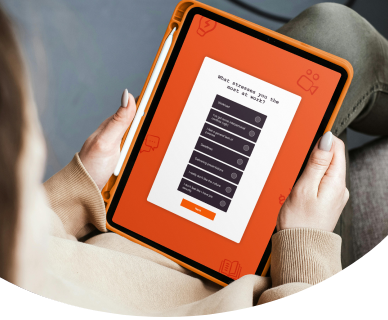On this particular night, Michael ordered the soup. “Is it vegetable stock or chicken stock?,” he asked the waitress. “Vegetable,” she replied. “Are you sure,” Michael said, “I can’t have it if it’s chicken based.” “It’s vegetable,” replied the waitress again confidently.
My friend Michael is a strict vegetarian. He loves going out for dinner with his friends and never complains. He can always find something to eat, he says. When we went out for dinner recently, I witnessed a little trick he uses to ensure he stays a vegetarian when he’s not doing the cooking himself.
The soup arrived. It looked good and smelled even better. Again Michael asked the waitress, “you’re sure this is vegetable stock, right? Because I’m really allergic to chicken and if there’s any chicken in it I will have a seizure.” And with that the waitress’s eyes got a little bigger. “Lemme just check,” she said as she went off to ask someone else. Within less than a minute, she walked back and took the bowl of soup away from Michael. “It’s chicken stock,” she said.
Until the waitress was accountable for Michael’s health, she didn’t seem too interested in ensuring that her answer was indeed right. The time it took her to find out was seconds. Giving Michael what he preferred didn’t seem to motivate her until she thought she may be responsible for anything more than disappointing a customer.
But this is not a story of how we sometimes have to lie to get someone to care about us. It’s actually something more positive. As soon as Michael shifted the accountability to the server, she was much more willing to invest more time and attention to Michael’s needs. In other words, when we make others accountable for what could be even negative results, people rise to the occasion.
We could all do a bit better at giving others accountability for things at work. If we give someone responsibility but then double check their work a hundred times before sending it to the client, then they are no longer accountable…we are. If we demand that someone ask us permission before doing anything, then we are the ones giving permission as opposed to assigning responsibility.
People are funny animals. When given serious responsibility, we tend to take it seriously and almost always rise to the challenge. The best organizations know this well. They don’t assign tasks to their people, they assign responsibility. And with shared responsibility, people tend to seek help from each other more often, increasing the quality of teamwork. The reason is simple, when we work together, we’re more likely to succeed than if we work alone.
It’s the most poetic of paradoxes. The more individual accountability we give to someone, the more they are willing to accept the help of others to ensure everything goes right. Even the server knew that.












